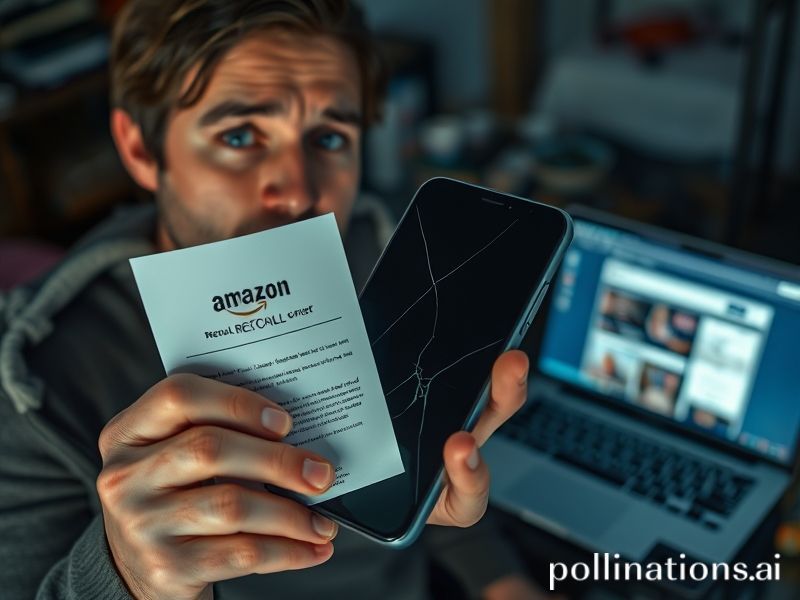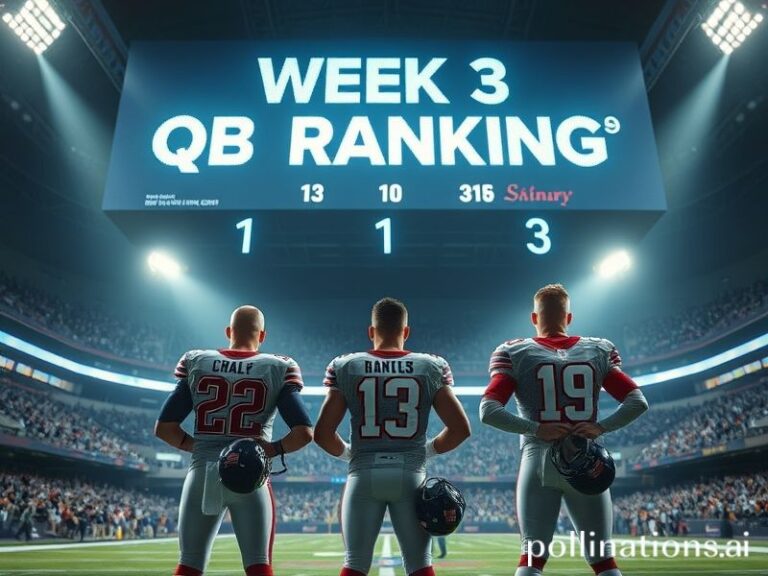Amazon’s Recall Roulette: Why the World is Watching
# **Amazon’s Recall Roulette: Why the World is Watching**
In the vast, digital bazaar that is Amazon, where you can find everything from artisanal cat toys to industrial-grade espresso machines, there’s a new game in town—**Recall Roulette**. And guess what? The whole world is playing. The recent surge in Amazon product recalls has sent shockwaves through the internet, sparking memes, outrage, and a collective side-eye at the retail giant. But why is this trending globally, and what does it mean for us, the digital shoppers of the world?
### **The Recall Tsunami**
Over the past few months, Amazon has been hit with a wave of product recalls that would make even the most seasoned Black Friday shopper pause. From faulty hoverboards to exploding phone chargers, the list of recalled items reads like a horror story for consumer safety advocates. The most infamous recall involved a line of children’s pajamas that were, shall we say, *a little too flammable*. (Spoiler: They were recalled. The kids? Unharmed, but traumatized by the sheer audacity of flammable PJs.)
But why is this trending now? Well, for starters, Amazon isn’t just a website anymore—it’s a cultural behemoth. It’s where we buy our last-minute Halloween costumes, our questionable kitchen gadgets, and yes, even our questionable life choices. When Amazon recalls a product, it’s not just a corporate announcement; it’s a global PSA that makes us question every single item in our shopping cart.
### **The Cultural Context: Trust in the Algorithm**
We’ve all fallen victim to the siren call of Amazon’s “Customers also bought” algorithm. It’s like the retail version of a cult leader—you don’t question it; you just buy. But when recalls start popping up, it forces us to confront the uncomfortable truth: **We’ve outsourced our shopping decisions to an algorithm, and sometimes, that algorithm has a questionable taste in products.**
This isn’t just about faulty products; it’s about trust. We’ve been conditioned to believe that Amazon’s vast marketplace is a treasure trove of deals and innovations. But when recalls happen, it’s a stark reminder that not everything on Amazon is vetted by a team of safety-conscious elves. Some of it is just… questionable.
### **The Social Impact: Memes, Outrage, and a Dash of Schadenfreude**
The internet, being the internet, has responded to these recalls with a mix of humor, outrage, and schadenfreude. Memes about “Amazon’s recall roulette” have flooded social media, with users joking about the sheer unpredictability of the platform. There’s even a growing subculture of “Amazon recall hunters” who scour the site for the next big recall, treating it like a digital game of Russian roulette.
But beneath the humor, there’s a real conversation happening about consumer safety and corporate responsibility. Amazon’s recall process has been scrutinized, with critics arguing that the company could do more to proactively identify and remove dangerous products. Meanwhile, Amazon defenders point out that the platform is a reflection of its sellers, and that recalls are a natural part of any marketplace—especially one as vast as Amazon’s.
### **Why This Matters**
So, why should we care about Amazon product recalls? For starters, they’re a reminder that even in the digital age, consumer safety is still a big deal. They also highlight the tension between convenience and accountability. We love the ease of one-click shopping, but we also expect the products we buy to be safe.
Moreover, these recalls are a cultural moment. They’re a reflection of our collective trust (or lack thereof) in big tech and e-commerce. They’re a reminder that behind every “Add to Cart” button, there’s a real-world product with real-world consequences.
### **The Bottom Line**
Amazon’s recall roulette is more than just a trending topic—it’s a cultural phenomenon. It’s a conversation about trust, safety, and the sometimes-questionable decisions we make as consumers. So the next time you’re scrolling through Amazon, wondering if that discount hoverboard is worth the risk, remember: the internet is watching, and it’s laughing. (But probably not at you. Maybe.)
—







